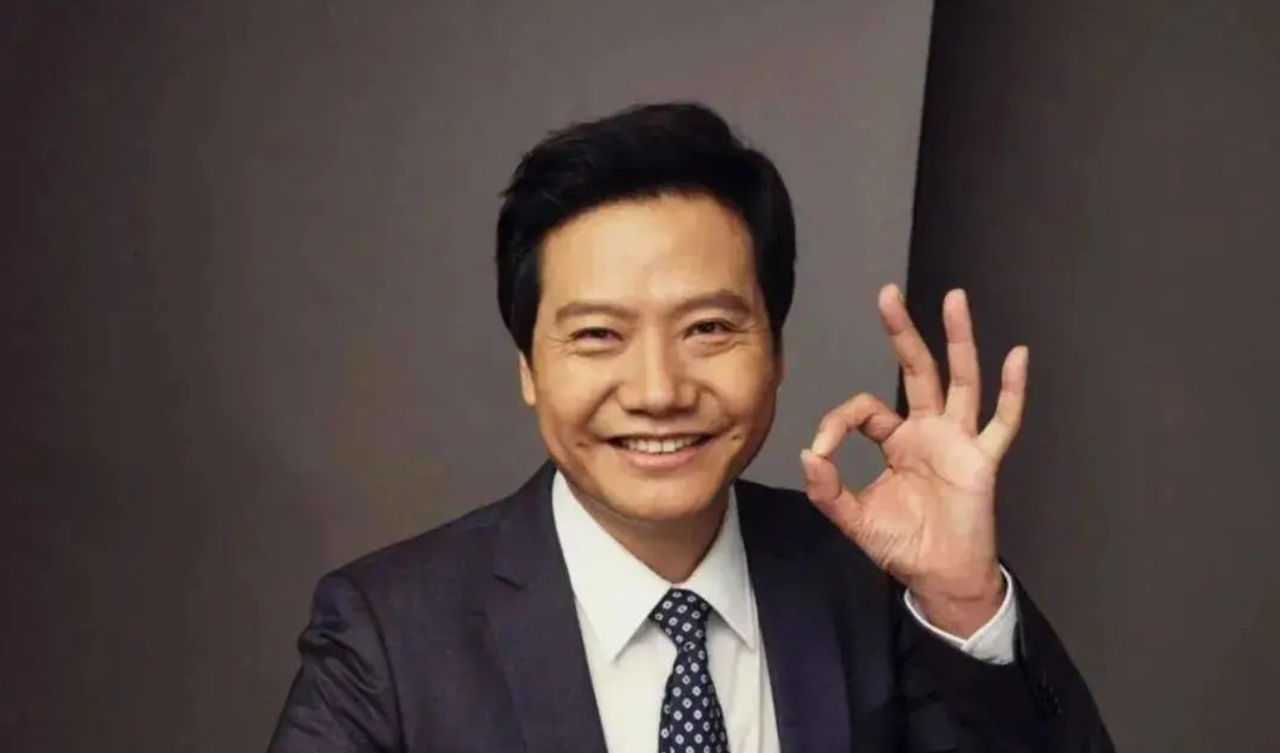Author | Zhang Lianyi
Editor | Qiu Kaijun
“In 2022, investment in new automotive businesses will exceed 3 billion RMB, and the automotive R&D team will exceed 2,300 people. In the startup phase, the investment is three times that of other car factories.”
On February 9th, at Xiaomi Group’s Investor Day, although it was agreed not to disclose the progress of car-making, Xiaomi Group Founder Lei Jun could not resist the enthusiasm of investors and once again shared the progress of Xiaomi’s car business. He emphasized that “the expected cost investment of Xiaomi’s new automotive business in 2023 will reach 7.5-8 billion RMB.”
Regarding the question of whether the 2024 production of cars is too late, Lei Jun said that the timing is just right. Moreover, the 10,000 offline stores established by Xiaomi in the past three years have been very helpful for the promotion of Xiaomi cars. Xiaomi owns 100% of Xiaomi’s car business, which is to reuse Xiaomi’s resources to bring tremendous help. “We strive to enter the top five in the world by 15-20 years.”
Cars are a Century-Long Game; Xiaomi Aims for the Top Five Globally
In 2023, in addition to focusing on mobile phones and high-end mobile business, Lei Jun is more concerned about this “0 to 1” new project: cars. He said that he spends half of his time on the car business every day, “1/4 in mobile phones, IoT and high-end, 1/2 in cars, and 1/4 in other things.”
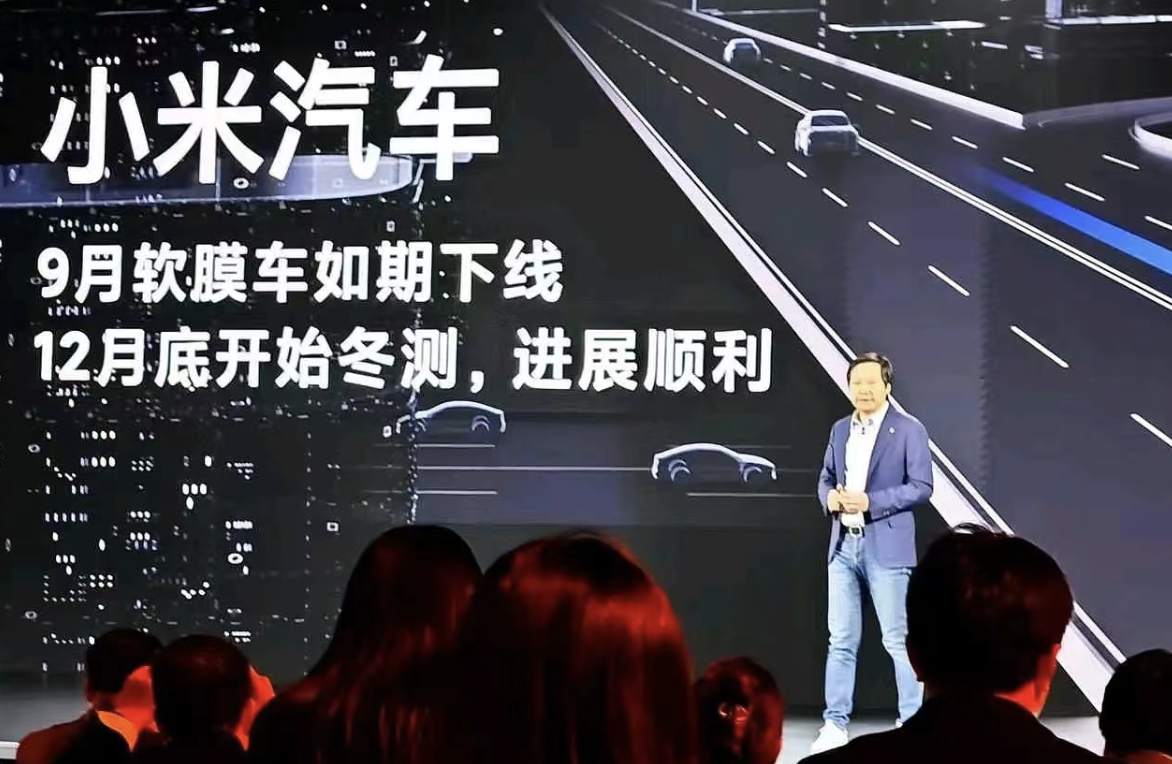
What you put in is what you get. According to Lei Jun, the soft film car of Xiaomi’s car business was successfully launched in September 2022 and winter testing began at the end of December. The official mass production time of the new car has not changed and is still the first half of 2024.
In Lei Jun’s view, 2024 is just the right time for the car’s debut. He believes that cars are a century-long game, and as long as you have confidence in the car industry, it is never too late to start. “Our capabilities in electronics and user experience operations are all in line with electric cars.”
Regarding how Xiaomi’s car business will make a profit, Lei Jun said that, like Xiaomi’s mobile business, Xiaomi’s car business focuses on software profit in addition to hardware profit. He pointed out that in the past, cars could integrate sales, after-sales service, and charging piles, and in the future, cars will integrate more and more services.
As for the question of whether the car business has an independent financing plan, Lei Jun “plays Tai Chi.” He said that the 10,000 offline stores established by Xiaomi in the past three years have been very helpful to the promotion of Xiaomi’s car business. “We have businesses in many countries around the world, and it will be a large marketing network. Xiaomi owns 100% of Xiaomi’s car business, which is to reuse Xiaomi’s resources. We strive to enter the top five in the world by 15-20 years.”
In Lei Jun’s view, intelligent electric cars are the integration of traditional automotive industry and consumer electronics, with many high-overlap capabilities with smartphones. Xiaomi’s first step is to learn traditional automotive industry and then integrate the experience of automotive electronics, which can seamlessly connect everyone in various scenarios.
He looks forward to the day when smartphones, cars, and smart homes are connected. In order to implement this strategy, Xiaomi will not rule out the acquisition of some good companies, “but will also consider stable operation. The Xiaomi team is diverse and inclusive.”
Globally Recruiting Talents, Continuously Upgrading Autonomous Driving
Xiaomi announced its entry into the car-making industry at the end of March 2021. Only one day later, Xiaomi Technology Co., Ltd. applied to register the “Xiaomi Auto” trademark.
After announcing the entry into the car-making industry, Lei Jun himself posted two Weibo posts about team building. The first time was in July 2021, announcing the recruitment of 500 autonomous driving-related technical talents. The second time was in September 2021, when Lei Jun announced the formal establishment of Xiaomi Auto Co., Ltd. On that day, Lei Jun posted a photo of himself and 16 other key team members.
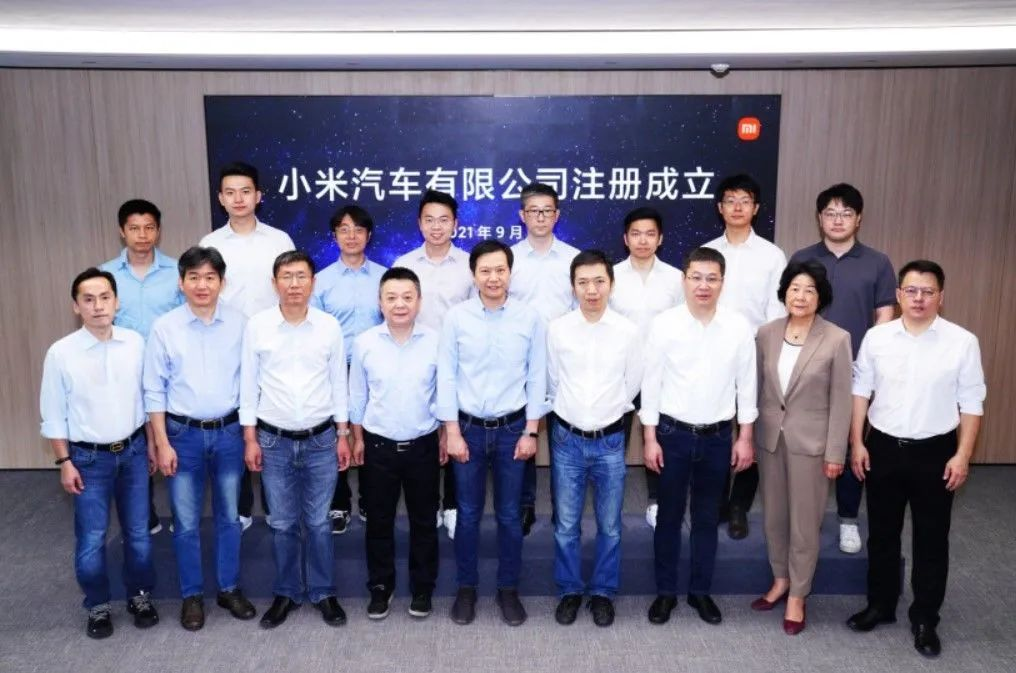
Among this 17-strong “jeans team,” almost all are high-level executives and talents within Xiaomi Group. Except for one who was once a BMW exterior designer, the others have no experience in the automotive industry.
With a lack of “car-making experience” in the executive team, Xiaomi Auto continues to recruit talent from across the internet. Former Geely Research Institute Dean Hu Zhengnan, former JIMU Motors CEO Yu Liguo, and former vice president of SAIC-GM Wuling Sales Co., Ltd. Zhou Xi have all joined Xiaomi.
At the same time, in order to strengthen its autonomous driving capabilities, Xiaomi even invested 77.37 million U.S. dollars to acquire the equity of Deepmotion Technology. This investment adds weight to Xiaomi Auto’s autonomous driving technology.
In addition, Xiaomi has invested in companies such as Zongmu Technology, Hesai Technology, Geometry Partner, and Heizhima Chips in the field of autonomous driving, covering various aspects such as autonomous driving solutions, LiDAR, and chips.
In August last year, Xiaomi Group officially announced the R&D progress of Xiaomi’s self-driving technology.
At that time, Xiaomi stated that it had invested 3.3 billion yuan in R&D costs in the initial stage of the autonomous driving field, formed a research and development team with a scale of more than 500 people, and steadily promoted the medium- and long-term industrial layout in the autonomous driving field through wholly-owned mergers and acquisitions and industrial investment in upstream and downstream enterprises.Lei Jun further introduced that the autonomous driving team is composed of 50 top experts, with more than 70% holding master’s or doctoral degrees. They cover the full-stack autonomous driving technologies required, such as sensors, chips, perception and control algorithms, simulation technology, high-precision maps, high-accuracy positioning, toolchains, and training capabilities.
In summary, Xiaomi’s autonomous driving technology will be fully self-developed, and they have plenty of talented individuals ready for the task.
Exterior design exposed, what about the first product?
With the talent assembled, what kind of product will Xiaomi create?
Lei Jun hasn’t formally expressed what Xiaomi’s first car will look like, but he has indirectly revealed the findings from their user surveys.
In the surveys, 45% of users wanted Xiaomi’s first car to be a sedan, 40% want an SUV, 7-8% want a sports car, and 5-6% want a camper. Most users would like the price range to be between ¥100,000 and ¥300,000.
From this, it can be inferred that Xiaomi’s first car may be either a sedan or an SUV, priced in the range of ¥100,000 to ¥300,000.
In late January of this year, a set of exterior components for what is believed to be Xiaomi’s first car was leaked online, displaying the vehicle’s front and rear bumpers.
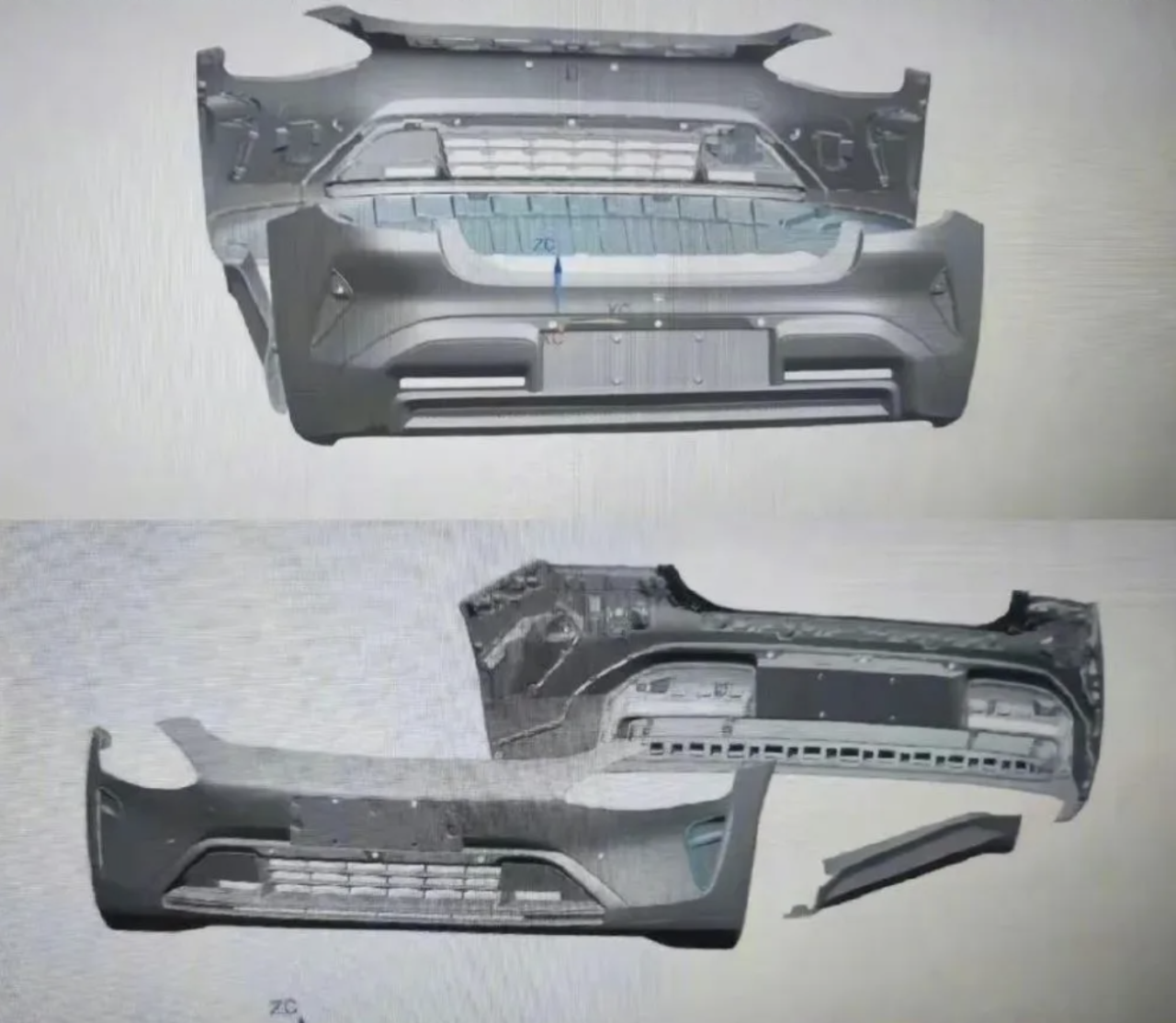
From the leaked images, it appears that Xiaomi’s first car will have a semi-enclosed front design with a trapezoidal grille, and air duct-like shapes on both sides of the fog lamp area. The design of the rear bumper echoes the front design.
Regarding this matter, Wang Hua, the general manager of Xiaomi Group’s public relations department, responded that the leaked design was from a second-tier supplier’s confidential design file, and the supplier was only producing samples for molds. The leaked files were very early designs from the bidding process, not the final ones.
According to Open-source Securities, Xiaomi’s first car will be priced between ¥150,000 and ¥300,000, positioned as a mid-to-high-end model, and is expected to enter mass production in 2024. Xiaomi also plans to release four more car models in the future, including two A+ grade and two B grade models.
Of course, autonomous driving will be a crucial aspect.
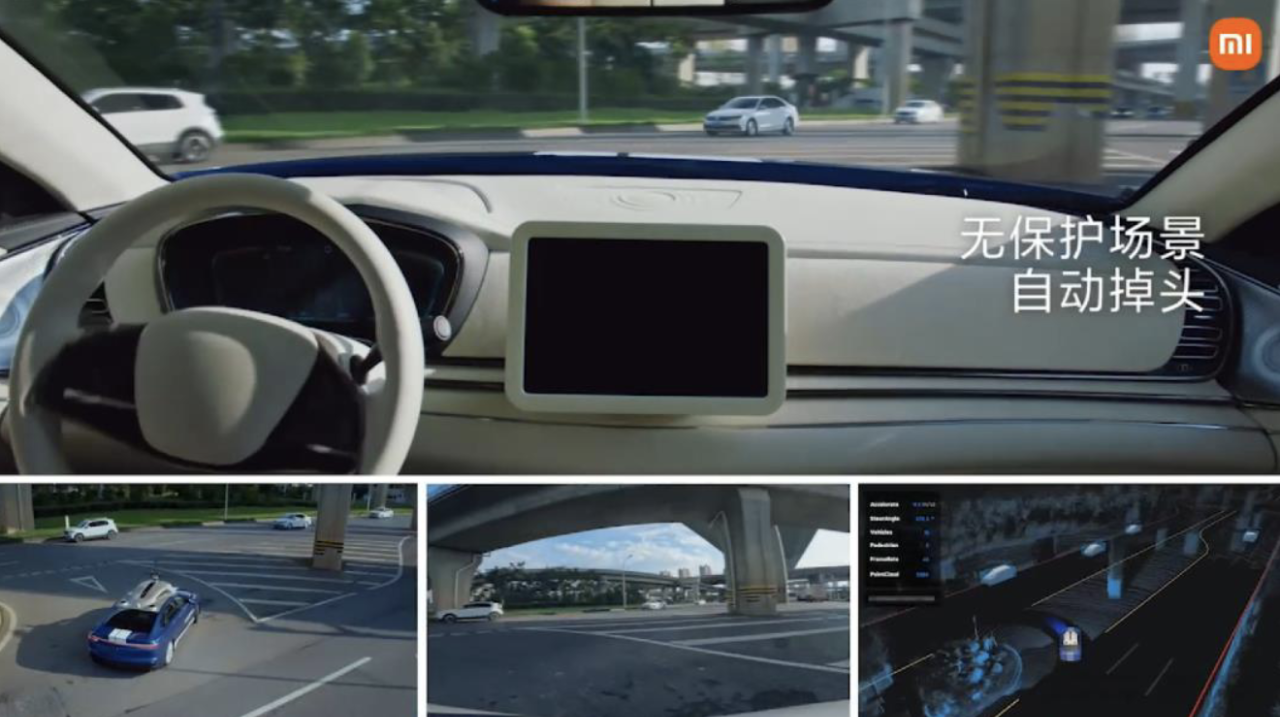 In fact, at Xiaomi’s fall product launch event in August last year, Lei Jun showcased real-life footage of Xiaomi’s autonomous driving technology being tested on the road, including automatic U-turns in unprotected scenarios, automatic avoidance of accident vehicles, automatic left turns at multi-lane intersections, automatic roundabout navigation, pedestrian crossing prioritization, and automatic parking with mechanical arm charging.
In fact, at Xiaomi’s fall product launch event in August last year, Lei Jun showcased real-life footage of Xiaomi’s autonomous driving technology being tested on the road, including automatic U-turns in unprotected scenarios, automatic avoidance of accident vehicles, automatic left turns at multi-lane intersections, automatic roundabout navigation, pedestrian crossing prioritization, and automatic parking with mechanical arm charging.
Although the test vehicles did not achieve breakthroughs, overall performance was good.
In addition, according to data from Zhuihua Ya, from its establishment to August 2022, Xiaomi has applied for 125 automobile patents, of which about 70 are related to autonomous driving, involving vehicle target detection, route planning, vehicle shape control, and L2+ level technology.
There are also some patents related to intelligent cabins, mainly involving voice and semantic recognition.
Obviously, as a technology enterprise, intelligent cabins and autonomous driving will definitely be the core selling points of Xiaomi’s automobile products.
The factory is nearing completion, and qualifications are also on the horizon.
After announcing its entry into the automobile manufacturing sector, Xiaomi quickly solved the factory location problem.
On November 27, 2021, the Beijing Economic and Technological Development Zone Management Committee and Xiaomi Technology signed a “Cooperation Agreement.” Xiaomi’s automobile project is expected to invest 63 billion yuan, and will build a complete vehicle factory with an annual output of 300,000 vehicles in two phases. The first and second phases will have capacities of 150,000 vehicles each.
According to the plan, the first phase of the Xiaomi factory is scheduled to begin construction in April 2022 and be completed in June 2023. The second phase will begin construction in March 2024 and be completed in March 2025.
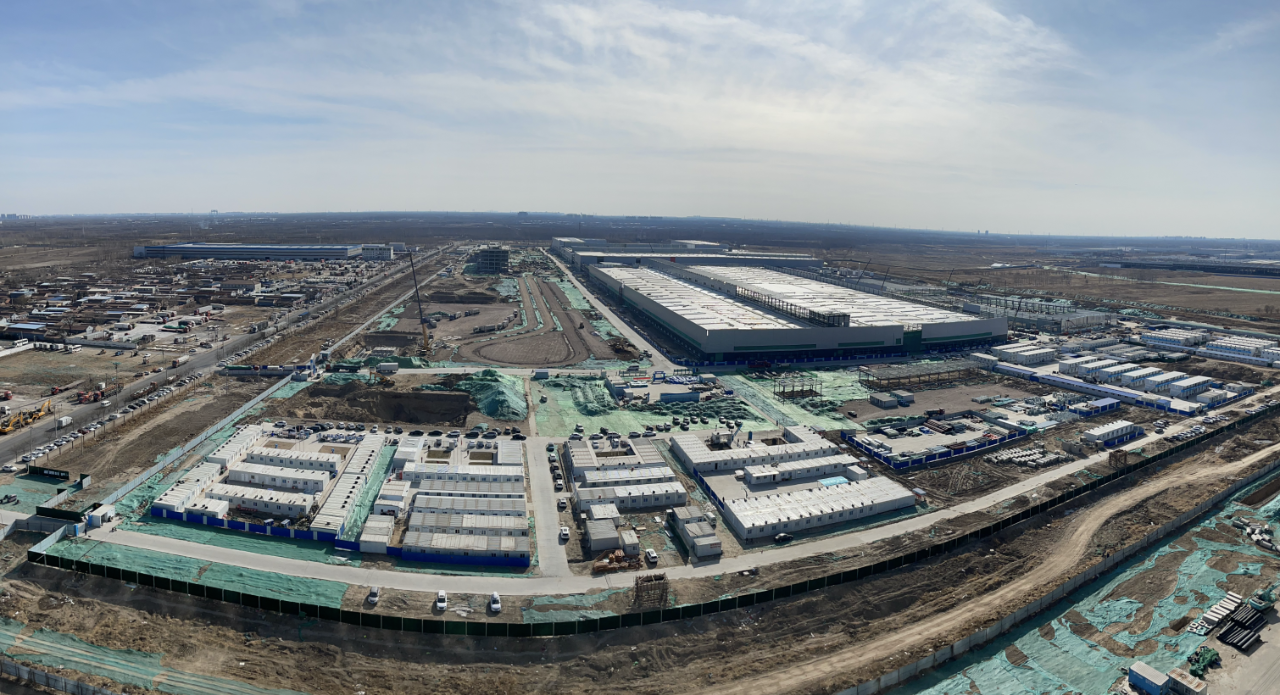
On February 8, 2023, we visited the Xiaomi automobile factory and found that the progress was smooth. Looking inside from the entrance, some workshops were nearing completion and the test track was clearly visible. The security guard at the entrance said that the first phase is expected to be completed this year in June or July.
Currently, the only “hardware” lacking for Xiaomi’s car manufacturing is the car production qualifications. Referring to other new car-making forces, there are generally three paths to solving automobile production problems: contract manufacturing, acquisition of qualifications, and application for qualifications.
Since Xiaomi has chosen to build its own factory, it is undoubtedly not going to rely on contract manufacturing, and with a series of documents issued, such as “Notice on Carrying Out Pilot Projects of Entrusted Production of New Energy Vehicles” and “Road Motor Vehicle Production Access Permit Management Regulations (Draft for Solicitation of Comments),” this path has become almost impossible.Even whether it is acquiring qualifications or applying for qualifications, neither path is easy.
With the implementation of the “Regulations on the Administration of Investment in the Automobile Industry” on January 10, 2019, the approval of automobile investment projects has been completely cancelled and replaced by local record management.
The path of acquiring a shell company with a qualification for producing complete vehicles and transferring it to a different factory may present certain difficulties based on the current situation.
Applying for production qualifications also faces high difficulty. The “Regulations on the Administration of Investment in the Automobile Industry” proposes stringent requirements for the province where the new project is located and the enterprise’s principal.
For example, the investment project’s province is required: During the past two years, the automotive production capacity utilization rate has been higher than the average level in the same product category; existing independent investment projects of new pure electric vehicle businesses of the same product category have been completed with an annual output reaching the construction scale.
In this light, for Xiaomi Auto, acquiring a qualification from Beijing seems to be the best choice.
Recently, there has been news that Xiaomi has resolved its qualification issue: “Beijing has granted a special approval and invalidated the qualification of Borgward, giving it to Xiaomi.”
If the above news is true, it undoubtedly means that Xiaomi Auto has taken a big step forward in landing.
All is ready, only to see if Xiaomi can offer a high-performance, cost-effective car that appeals to the masses. “Technology is the foundation, cost-effectiveness is the pledge, and we make the coolest product.” If Xiaomi’s “three ironclad rules” can be implemented in the automotive industry, it may inject new vitality into the field.
This article is a translation by ChatGPT of a Chinese report from 42HOW. If you have any questions about it, please email bd@42how.com.
